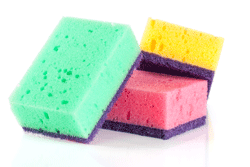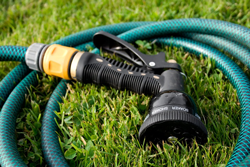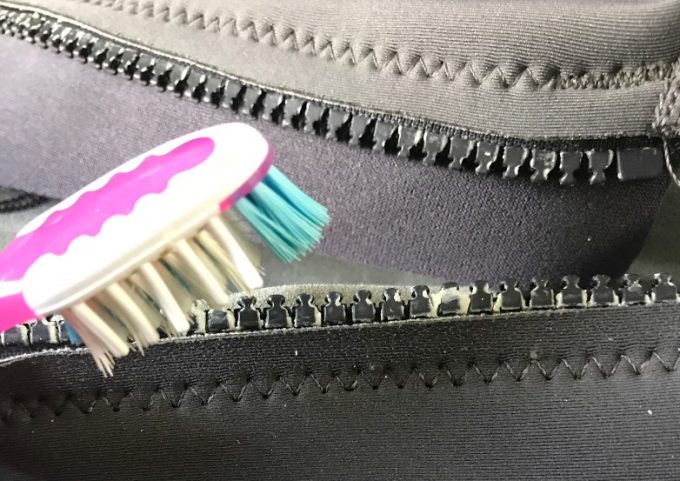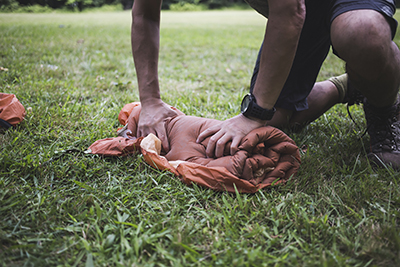The winter is slowly coming to our steps, and as we are looking forward to securing the heating for our homes, we are also thinking about our gear that was our faithful companion during the rest of the year.
In urban surroundings, your home gives you shelter, but when you are camping outside, your tent is your home sweet home for a short time.
Being a good housekeeper means that you will also need to take care of your tent, so it could serve you for many years to come.
Have in mind that all tents are made for outdoors use which means that they will stand to the tests of weather conditions.
Therefore you will only need to wash it or clean it if it catches outdoor smells or if it becomes soiled with bird droppings, dust, or tree sap.
In this article, we’re going to tell you how to wash a tent.
More...
What Not To Do!
When you decide to wash and clean your tent, you would probably think that the best way to do it is to disassemble it, take some detergent and bleach, and put that into the washing machine together with the tent.
1. Don't wash a Tent in a Washing Machine
Well, this certainly looks like the easiest way, but if you go with this, you will do it so wrong causing the damage to the tent.
Never, and this means NEVER wash your tent in the washer, and do not dry the tent in it!

The washing machine and this also includes the top-loader types, can easily stretch out and tear the fabric together with seams and mesh during the high-temperature process.
So, the tent fabric will be damaged losing its waterproof feature, and you will need to buy new the new tent.
2. Beware of Chemicals You Use
Related to detergents, you should avoid any cleaning fluid that you use in the kitchen or the bathroom. These cleaning fluids are abrasive and could damage the fiber, seams or mesh.
So, the punchline is – no bleach, no spot or stain removers, laundry products or dishwashing liquid.
3. The Soap Thing
The last addition is related to soap that you usually use in the house.
You can’t use daily soap because almost all of them are perfumed, which means that the scent will attract insects, rodents and even bigger animals. Also, ordinary soap could damage the waterproof coating of the tent.
4. Don’t Hurry
If you want to be sure that the washing and cleaning is successful, it is better to take your time, and to the job with care.
Also, there must be no hard scrubbing of the fabric, inside or outside, because you could damage the waterproof feature of the tent.
Tent Cleaning Step-by-Step
The steps below are here to help your organization of the tent washing and cleaning process. Follow them, and the chance of doing the excellent job is on your side.
Preparation
Air is Your Friend in Need - The best way to start is to air-went your tent for some time. You can do this almost everywhere, and there is no such thing as too much air-went for the tent.
If you don’t have enough space indoors to pitch the tent, you can just leave it somewhere to hang.
Vacuum Cleaner - Further, you can easily do a basic cleaning and remove the remaining pine needles, dust, and check if there are any leftovers inside the tent.
After this, you are now ready for real action!
Gear Up! - For the next step, you have to prepare some additional utensils, and those would be – nonabrasive sponge, bucket with the cold or warm water and non-detergent soap. Also, it would be useful if you would have a garden hose nearby.



#1 Cleaning with Soap
There is a possibility that you will notice signs of changing the color of fabric, together with the mildew smells.
Instead of hard scrubbing, you should do this step carefully, because your primary goal is to stop the growth of the microorganisms, together with removing of black mold and mildew.
Take notice, the black mold and mildew can leave a permanent stain on the fabric, so the best solution is to use the enzyme remover.

More Chemical Awareness - One more thing, if you use enzyme cleaning product which requires that tent must be submerged in the water, make sure that you first check the label and see how much time it has to be under water.
If you continually expose the fabric of the tent to moisture, that can lead to hydrolysis – the process that starts to dissolve the material and damage the waterproof coating.
#2 Cleaning Zippers and Poles
During the outdoor use, zippers and poles are like to get dirty with mud and dust, or even the rust.
You can use some old brush to clean the zippers, and used a rag to remove the dust. Additionally, you can use the lubricant which is labeled for outdoor use and put it on the zipper tracks and poles.

Remember, either if you are using the bucket full with water, or garden hose, you must rinse the tent thoroughly and wash down all the detergent remaining; otherwise, it will also leave the stain and damage the fabric through time.
#3 Dry completely
Finally, after the scrub-cleaning and washing down the soap residue is over, place your tent in the backyard during the sunlight and let it dry.
Never dry the tent with an unnatural light source, because it can damage the fabric – you must let it dry itself naturally.
Don’t forget, after the soap and water soaking, zipper, zipper tracks and seams will be very wet, which means that it will take extra time to dry the tent completely.
#4 Storing Your Tent
Now, your tent is clean, dry and ready for another use, or storing. If you somehow think that the cleaning or washing the tent is the most important job, be aware that storing is one ladder above.

Via trails.com
As we have said, make sure that your tent is 100% dry, because if there is any moisture left, it can trigger the growth of microorganisms and give you back the mildew and unpleasant smell.
The remaining moisture can break down the fabric, which can cause the need for repair or replacement of the tent with the new one.
Discover More:
2. Best Cabin Tents Buying Guide – Camp in Style Almost Anywhere
Where to Put the Tent?
Finally, the stuff sack isn’t the best choice for packing the tent – old pillow case or something similar will do the trick because the fabric needs to breed.
A cool and dry place is the best one for storage, so you must avoid any heat source, including the basement, attic or car trunk.
And that is all. We hope that this short guide on How to wash a tent will be helpful, so you can use your tent for many years to come.

Thank You For Sharing The helpful Information! This Post Has Given Me very Much Knowledge And Helped Me So Much When Cleaning My Car Tent. I Really Wish This Post Will Be More Popular To Come To Many Other People. Thank You Very Much For Your Tent Wash Post. But Do You Have Any Electronic Pressure For The Car Wash?